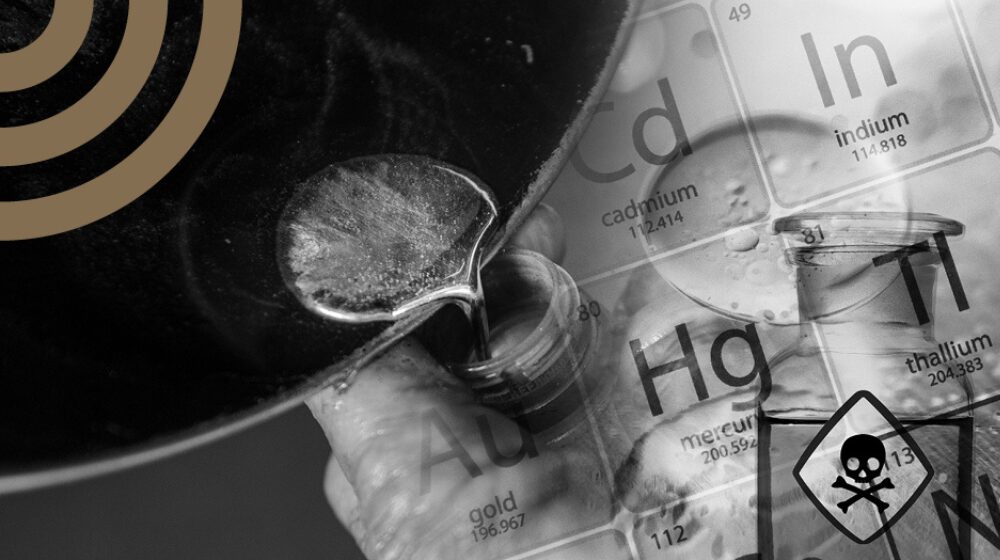Gold mines in Brazil might have used 185 tons of illegal mercury

Instituto Escolhas, a leading Brazilian-based organization that researches and provides public policy solutions to combat illegal gold mining, has just released a new study focusing on mercury, a highly toxic metal still widely used in Brazilian wildcat gold mines. The study “Where does so much mercury come from?” reveals that no less than 185 tons of mercury of unknown origin might have been used for gold mining in Brazil between 2018 and 2022.
According to the study, in five years, between 165 and 254 tons of mercury were used to produce the 127 tons of gold reported in areas holding wildcat mining permits. However, according to official data, Brazil – not a mercury producer – imported only 68.7 tons of the metal. This indicates that between 96 and 185 tons of mercury might be illegal.
“Our estimate is very concerning. It reveals a huge failure of government controls over mercury trade and use, a serious threat to human health and the environment. Brazil must commit to phasing out mercury. Until then, the bare minimum is strict controls,” warns Larissa Rodrigues, Escolhas’ researcher responsible for the study.
Rodrigues points out that between 2002 and 2022, Brazilian gold exports increased from 35 to 96 tons per year, and wildcat mining areas increased from 68 thousand to 224 thousand hectares. “Gold mining operations have not stopped using mercury over these two decades, but official mercury imports have dropped dramatically, from 67 tons to 15 tons per year. The numbers don’t add up and point to a potential illegal trade” emphasizes the researcher.
Brazil, one of the largest gold producers in the world, directs its production to exports. In 2022, Brazil exported 96 tons of gold mainly to Canada (35%), India (16%), Switzerland (15%) and the United Kingdom (15%). According to the most recent analyses of Instituto Escolhas, 54% of Brazil’s gold might be illegal, threatening particularly the biodiversity rich Amazon rainforest and violating indigenous rights.
Read the study here.
Related
Brazil attended COP-6 in Minamata without presenting an action plan to address mercury usage in mining
Lack of strategies hinders Brazil’s opportunity to lead the global herbal medicine market.
To meet climate commitment, Brazil needs to revise the BRL 32 billion foreseen to support the agricultural sector
Governments of the Legal Amazon loose resources due to lack of investments in forestry concessions

 Texto
Texto